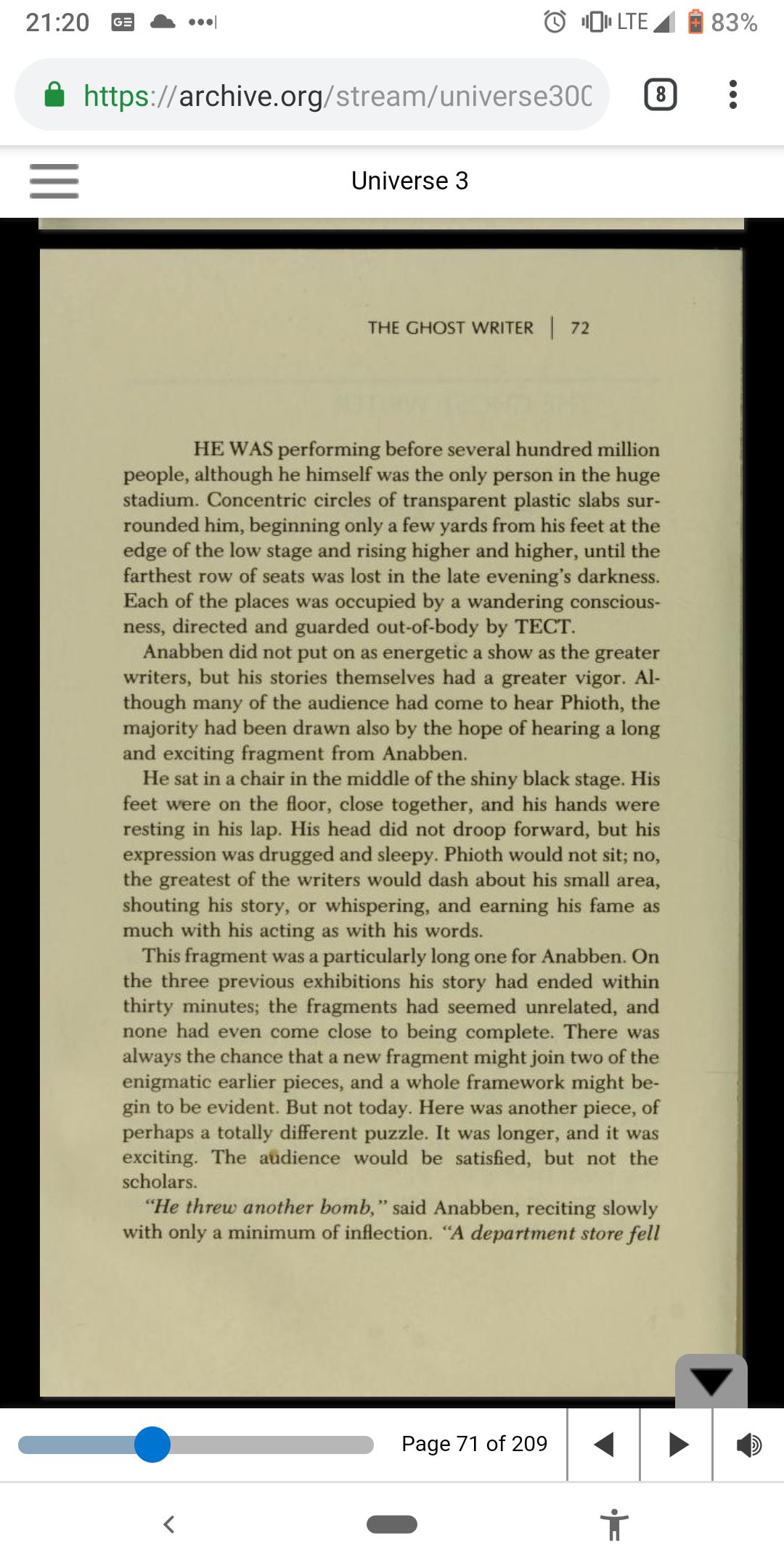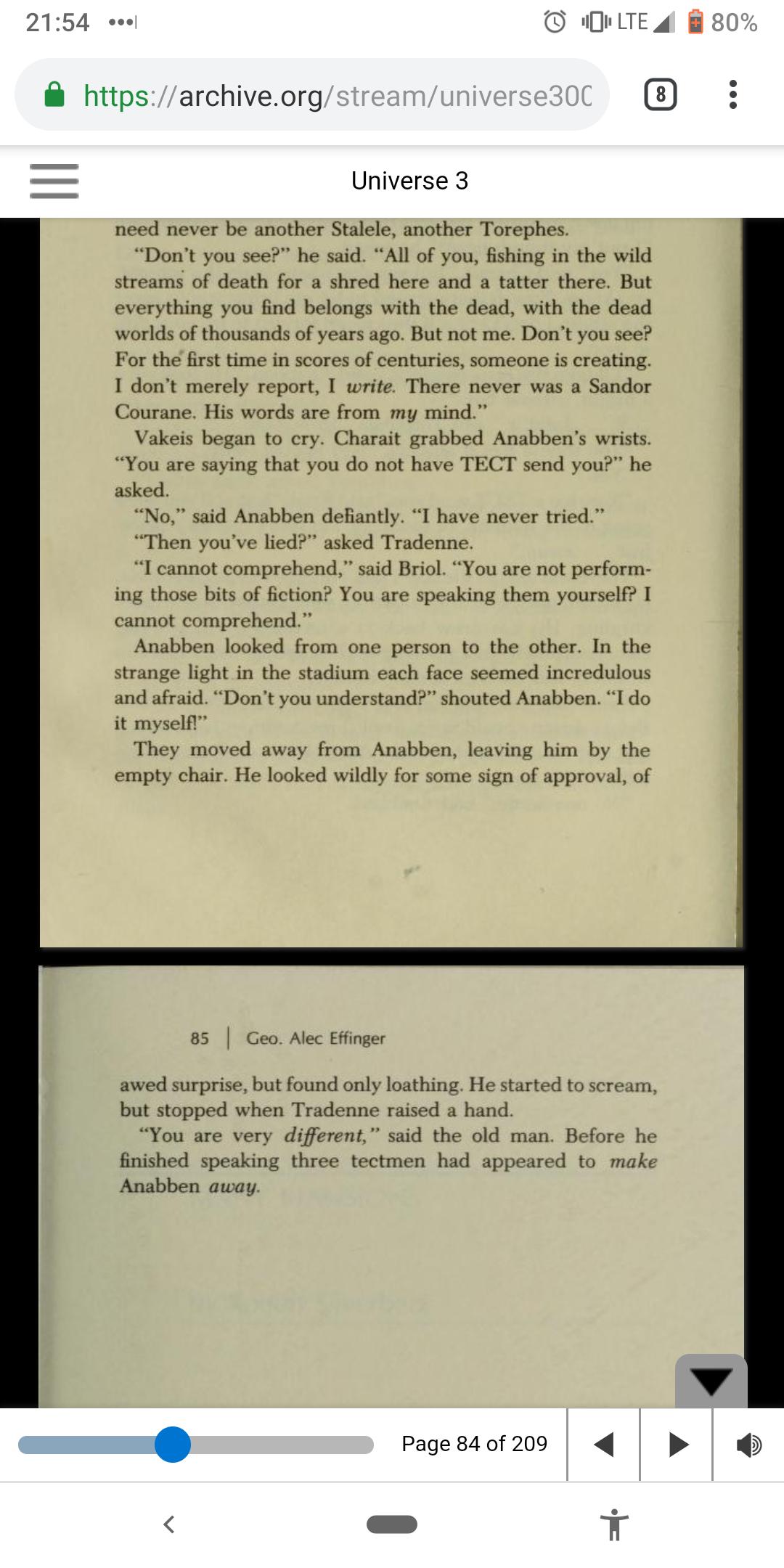I think I read this one in a hardback anthology that I checked out from a public library sometime in the 1990s. Definitely an English-language collection, with stories by various authors, although I don't recall any of their names. Here's what little I do remember about the plot of one story which seemed to be set some centuries in the future.
The main viewpoint character is a man who, in his future society, has become quite popular for his skills in doing what we, today, might call a type of theatrical monologuing. The general idea is that he stands up in front of a live crowd, possibly with TV cameras rolling so millions of others may watch and listen, and recites from memory a sizeable chunk of prose. He does this at regular intervals -- his own ongoing show, you might say. I have a vague impression that his typical performance was probably over an hour in length; possibly two hours or more. (I don't recall if he did this weekly, or several times a week, or what, but it was on some sort of regular schedule so that his fans could plan ahead for it.)
The tradition, in this future culture, is that the prose being recited on such occasions is always taken from some preexisting work of literature by someone else. For instance, the performer might be swiping from a novel written a few centuries earlier, which almost no other living person has ever so much as glanced at. Apparently it is commonplace for most members of the audience to not recognize the material they are now hearing. I am not quite sure, but I strongly suspect that the entire concept of "writing and publishing brand new fictional prose which may become a bestselling novel" has long since fallen into disrepute, and quite literally never happens any more! (I simply don't recall, offhand, if such things as "new movies" and "new television dramas" were ever stated or implied to still be coming out.)
I believe the protagonist never repeated himself -- didn't just follow the same script (such as something from Shakespeare) several times a year, for instance. Instead, each time he would perform something he had never done before, which might or might not be an obvious continuation of the previous performance's material (such as simply reciting the next chapter from an ancient novel). The idea seemed to be that if the protagonist suddenly switched gears and performed something which seemed to have no connection to what he'd done last time around, this was presumed to indicate that he was being very subtle in following some overall plan to make a certain impact on his listeners, in the long run, in the "new experience" which he was giving them in installments. Possibly as a deliberate collage of passages from various ancient authors which all touched upon certain themes in different ways? (Or something like that -- as I said, my memories are hazy.)
Toward the end, the protagonist reveals something shocking to one or more of the other characters. (I have a vague idea that his listener, or one of his listeners, may have been a woman whom he'd been dating.) The revelation is: Lately he's been reciting some of his own, original efforts at literature -- instead of, as was the Sacred Custom, merely offering his own take on something a great deal older than himself. Unless I am forgetting something important (which is a serious possibility), the "performance of Incredibly Obscure Existing Literary Material" approach was as close as anyone was "allowed" to come, in this future era, to producing a new stage play or piece of prose fiction.
One of the reasons this story is nagging at me, now, is that I can't even remember just how it ended. I have a suspicion that the protagonist may have died at the end, or otherwise been facing severe punishment for his breach of tradition. (The tradition about "not composing new material" may have been written into the laws of the land -- I can't recall.) At any rate, I don't think it was a "classic happy ending" from the main character's perspective. I cannot recall if anything else of interest had been going on in other subplots in the course of the story.
Does this sound familiar to anyone?


